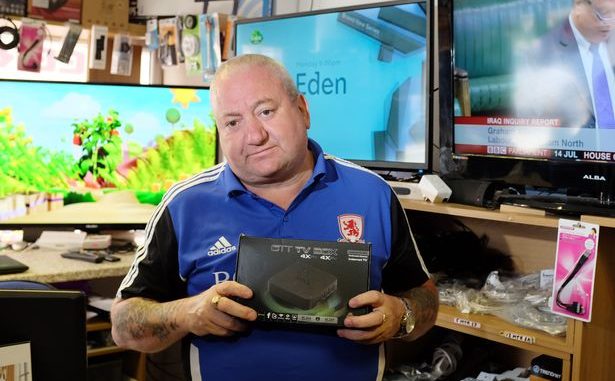
The man at the center of a landmark case involving the supply of “fully-loaded” Kodi boxes pleaded not guilty Friday morning.
Middlesbrough shopkeeper Brian Thompson admits selling modified set-top boxes but denies that they were primarily designed to “facilitate the circumvention of effective technological measures.”
With the advent of cheap Android devices such as Amazon’s Fire Stick and dozens of set-top variants, anyone can install legal software such as Kodi to watch recorded media.
However, those very same devices can be modified to do things that at best sit in a legal gray area and at worst could be illegal. We’re talking about viewing movies, TV shows, live TV and PPV events, without paying a dime to anyone.
In some parts of the world the phenomenon has reached epidemic proportions, so much so that the Federation Against Copyright Theft now cite it as a major concern in the UK. But while there is not much anyone can do to clamp down on people at home doing a DIY job on their own setups, it is possible to crack down on people who supply pre-modified devices.
One individual that has found himself in the middle of the controversy is UK-based Brian ‘Tomo’ Thompson. The Middlesbrough-based shopkeeper was previously raided by police and Trading Standards after selling “fully loaded” Android boxes from his small premises.
Unusually for such cases, Thompson is being prosecuted by his local council. He’s under the impression that he’s done nothing wrong but now wants to discover where the boundaries lie for sellers of similar devices.
“All I want to know is whether I am doing anything illegal. I know it’s a gray area but I want it in black and white,” he said last September.
Friday morning Thompson appeared before Teeside Crown Court for a plea hearing. As promised, BBC reports that he pleaded not guilty, which means his case will now go to a full trial.
In what will be a landmark case, Thompson stands accused of two offenses under section 296ZB of the Copyright, Designs and Patents Act. This section deals with devices and services designed to circumvent technological measures.
“A person commits an offense if he — in the course of a business — sells or lets for hire, any device, product or component which is primarily designed, produced, or adapted for the purpose of enabling or facilitating the circumvention of effective technological measures,” the law reads.
Kodi installations with third-party addons effectively ‘farm’ content already available on various ‘pirate’ sites on the Internet. On that basis, it could be argued that any anti-circumvention/anti-copying measures put in place by broadcasters and other copyright holders have already been bypassed by the time the addon streams the content to the user.
However, the Court will have to decide what part, if any, Thompson played in circumventing those measures when he sold modified Kodi devices to his customers. According to the BBC, two of those sales were test purchases made by Middlesbrough Council.
The outcome of the trial, which is likely to be complex one, will have little effect on people who modify their own Kodi installations at home. However, it is likely to determine the boundaries when it comes to those offering “fully loaded” Kodi TV devices for sale in the UK.
Source: ![]() TorrentFreak.com
TorrentFreak.com






Be the first to comment